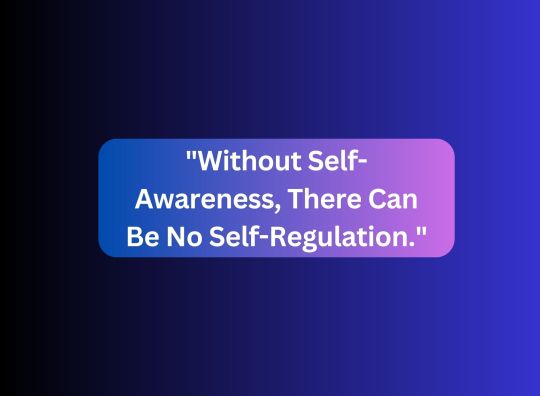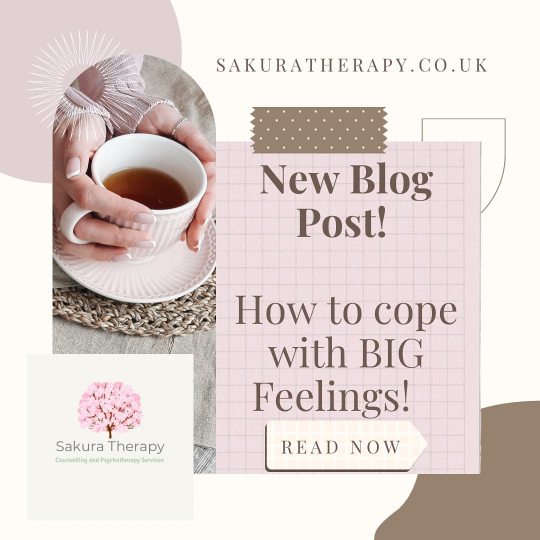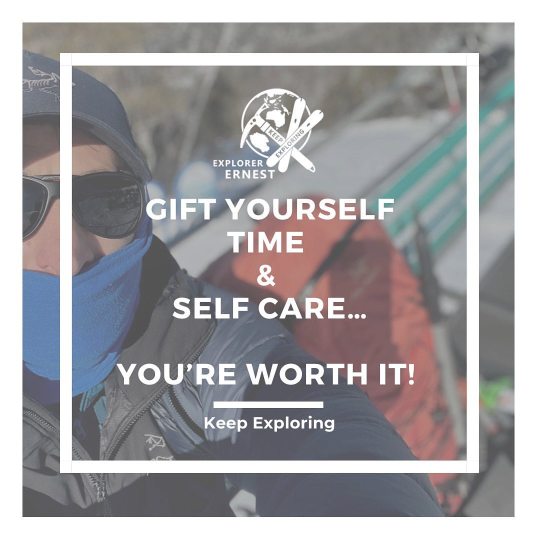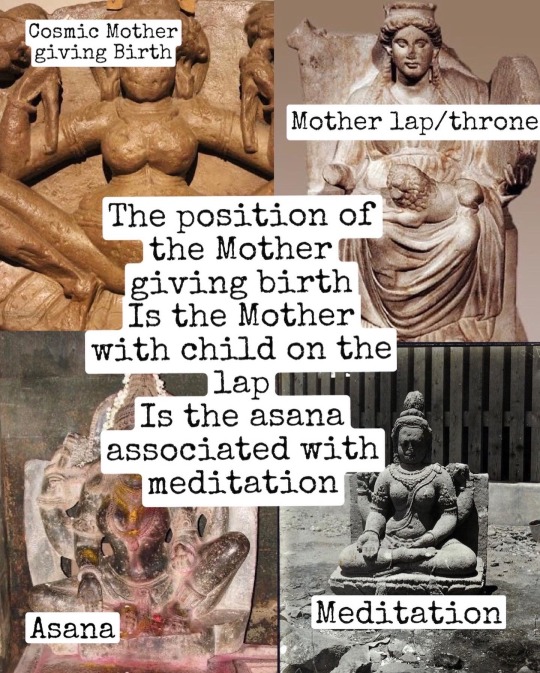#selfregulation
Text

4 notes
·
View notes
Text
Unleashing the Power of Play: The Numerous Benefits of Play-Based Pediatric Occupational Therapy
As pediatric occupational therapists, we know that children learn and develop through play. Play not only allows children to have fun, but it also helps them develop the skills they need for daily activities and function. This is why play-based Occupational Therapy (OT) has become a popular approach among therapists and parents alike as it offers a range of benefits for children. Let’s dive in deeper to explore some of the key benefits of play-based OT.
1. Improves Motor Skills
Play-based OT is a great way to improve a child's motor skills, including both gross and fine motor skills. By incorporating various activities into therapy sessions, such as building blocks, playing with playdough, catching and throwing a ball, or crawling under an obstacle course, children can improve their coordination, balance, and strength. This can help them with daily activities such as dressing, feeding, and writing.
2. Enhances Cognitive Skills
Play-based OT can also help children improve their cognitive skills such as problem-solving, planning, and organization. By engaging children in activities such as puzzles, memory games, and board games, children can improve their attention, memory, and processing skills. This can help them with school-related tasks like reading, writing, and math.
3. Boosts Self-Esteem
Play-based therapy can be an excellent way to boost a child's self-esteem and confidence. By providing a safe and supportive environment where they can be creative and explore different materials and activities, children can experience success and accomplishment. This can help them feel more confident in their abilities and encourage them to try new things.
4. Facilitates Socialization
Play-based therapy sessions also offer children the opportunity to socialize and interact with others, which is an essential aspect of their development. In group sessions, for example, children can learn how to share, take turns, and collaborate with others while engaging in different activities. This can also help children improve their communication skills and develop relationships with peers.
5. Customizable to Individual Needs
Play-based therapy is customizable to each child's unique needs. Play-based sessions can be tailored to target specific skills and areas of weakness, whether it's fine motor skills, sensory processing, or social skills. This way, each child can receive a personalized approach that meets their specific needs and goals.
#pediatricoccupationaltherapy#OTforchildren#sensoryprocessing#fineandgrossmotor#handwriting#feedingtherapy#autism#developmentaldelay#cognitiveimpairment#behavioraldisorders#ADHD#learningdisabilities#earlyintervention#sensoryintegration#visualperception#socialskills#motorplanning#selfregulation#assistivetechnology#schoolbasedOT#playtherapy#therapeuticinterventions#balanceandcoordination#mentalhealth#occupationaltherapygoals
1 note
·
View note
Text
Find a way 2 self regulate
0 notes
Text
New beginnings
This is an opportunity for me to rewrite my story... this time for real...
1 note
·
View note
Video
youtube
How Emotions Can Boost Your IQ
Emotional intelligence is a critical component of learning. By developing emotional intelligence skills such as self-awareness, self-regulation, empathy, and social skills, you can become a more effective learner and achieve greater success in school and beyond.
#youtube#learning#IQ#BrainPower#MindOverMatter#LearnWithEmotions#SocialSkills#Empathy#SelfRegulation#SelfAwareness#BoostYourIQ#EmotionalIntelligence#SmartLearning
1 note
·
View note
Text
Why Self-Awareness Is Key To Self-Regulation🔥🔥🔥
Are you struggling to control your emotions and behaviors?
Do you want to improve your self-discipline and make better decisions?
Find out how self-awareness can be the secret weapon to self-regulation success.
Self-awareness and self-regulation are closely related psychological constructs that are important for our overall well-being and functioning. Here are ten signs that demonstrate the relationship between self-awareness and self-regulation:

You are able to recognize your own emotions:
Self-awareness involves the ability to recognize and understand our own emotions. When we are self-aware, we are able to identify our feelings and understand the causes and consequences of those feelings.
2. You are able to recognize the impact of your actions on others:
Self-awareness also involves being attuned to the effects of our actions on others. When we are self-aware, we are able to consider the perspective of others and understand the impact of our behavior on them.
3. You are able to set goals and make plans to achieve them:
Self-regulation involves the ability to set goals and make plans to achieve them. When we are self-regulating, we are able to prioritize our tasks, manage our time effectively, and take steps to achieve our goals.
4. You are able to manage your emotions effectively:
Self-regulation involves the ability to manage our emotions effectively. When we are self-regulating, we are able to recognize and acknowledge our emotions, and use strategies such as relaxation techniques or problem-solving to manage them.
5. You are able to control your impulses:
Self-regulation also involves the ability to control our impulses and make decisions that align with our values and goals. When we are self-regulating, we are able to resist temptation and make choices that are consistent with our long-term goals.
6. You are able to handle stress effectively:
Self-regulation involves the ability to handle stress effectively. When we are self-regulating, we are able to recognize and acknowledge stress, and use strategies such as relaxation techniques or problem-solving to manage it.
7. You are able to adapt to change:
Self-regulation involves the ability to adapt to change. When we are self-regulating, we are able to recognize and acknowledge change, and use strategies such as problem-solving or seeking support to manage it.
8. You are able to learn from your mistakes:
Self-regulation involves the ability to learn from our mistakes. When we are self-regulating, we are able to reflect on our mistakes, identify the causes, and use what we have learned to make improvements.
9. You are able to cope with failure:
Self-regulation also involves the ability to cope with failure. When we are self-regulating, we are able to recognize and acknowledge failure, and use strategies such as seeking support or reframing our perspective to cope with it.
10. You are able to maintain a healthy balance:
Self-regulation involves the ability to maintain a healthy balance in our lives. When we are self-regulating, we are able to prioritize our responsibilities and make time for self-care, recreation, and other activities that contribute to our well-being.
Overall, self-awareness and self-regulation are essential skills that enable us to effectively manage our emotions, thoughts, and behaviors. By developing these skills, we can improve our well-being, achieve our goals, and lead fulfilling lives.
What do you think?
I know one of these got you mad. There’s at least one thing on my list you fully disagree with. If so, let me have it in the comments!
Thanks for reading!
Wait a second. For more, watch the video version of this article on Youtube here
#selfimprovement#positivity#mindsetmatters#wellness#mindfulnessmatters#selfgrowth#mentalhealthmatters#empowerment#selfdiscovery#goals#selfawareness#selfregulation#personaldevelopment#meditation#emotionalintelligence#selfcontrol#wellnesswednesday#personalgrowth#successmindset#positivevibes
0 notes
Photo

📣📣📣 New Blog Post - How to cope with BIG feelings. We can often worry that we can’t cope with BIG feelings. Which can often lead to avoidance of feelings all together. We can avoid in many ways - sometimes not even realising that this is what we are doing! Read my blog post to read how avoidance of big feelings, can lead to suppressing joy and the good feelings too. Learn useful tips on how to cope with your feelings. Link in bio Follow me @sakura_therapy #newblog #blogger #writer #bigfeelings #selfregulation #emotionalregulation #copingskills #copingstrategies (at Derbyshire) https://www.instagram.com/p/CpUb0mQspJk/?igshid=NGJjMDIxMWI=
#newblog#blogger#writer#bigfeelings#selfregulation#emotionalregulation#copingskills#copingstrategies
0 notes
Photo

🥁thisbrownteacher.com Think your nontraditional learner may enjoy a chance to interact with a new skill? or Want to try something different for your usually introverted child, because ... you never know? or Need a few minutes to just, IDK, breathe while your child does something fun? We want the best for our children and we wouldn't mind finding resources that really connect with our special children. We’re out here doing the best we know how, looking to elevate their experiences through the addition of supports geared to things, themes, and topics our children are actually interested in. Like … drumming. KIDS LOVE DRUMMING. These simple drum sessions feature the basics of drumming and drum patterning. Through drumming, learners can practice skills that may help regulate or soothe nontraditional behaviors. Drumming Supports Neurodiverse Children. Here's How: + counting + reading the room + taking turns + interpreting social cues + self-soothing and self-regulation + outlets for repetitious movements, need to move hands and body + building intrinsic motivation + inadvertently learning to pay attention to detail + expanding creativity + sustaining attention + breaking and transitioning (transitions are actually built into drumming) + enhancing listening skills ALL LEARNERS, INCLUDING HOMESCHOOLERS & AFTERSCHOOLERS, ARE WELCOME: ☺️ Classes are LIVE and Online. ☺️ 25 Minute Lessons. ☺️ Learners may practice with drum sticks, chopsticks. or their fingers. ☺️ No drums required or necessary. DrumKids is about patterns, repetition, and hand motions. Not noise. Learners may even learn by tapping gently on a throw pillow. DM for INFO! #neurodivergent #neuordiversity #neurodiverse #autism #autismawareness #actuallyautistic #adhd #neurodivergentkids #autistickids #atypical #nontraditional #highfunctioning #homeschoolmom #homeschooling #inclusion #drums #kidsdrumlessons #mentalhealth #selfregulation #trigger #hughenergy #asd #anxiety #autistic #aspergers #autismspectrumdisorder #specialeducation #afterschool #tutor #elementaryteacher https://www.instagram.com/p/Co8Y7LRNEH7/?igshid=NGJjMDIxMWI=
#neurodivergent#neuordiversity#neurodiverse#autism#autismawareness#actuallyautistic#adhd#neurodivergentkids#autistickids#atypical#nontraditional#highfunctioning#homeschoolmom#homeschooling#inclusion#drums#kidsdrumlessons#mentalhealth#selfregulation#trigger#hughenergy#asd#anxiety#autistic#aspergers#autismspectrumdisorder#specialeducation#afterschool#tutor#elementaryteacher
0 notes
Text
Educator Reflection Tips #176: When was the last time you conducted an "Emotional Self-Check"?
"Emotional Self-Checks" are essential when navigating moments of instability, Pandemic fatigue, & continuously pivoting in times of change. @LiviaLChan @RaeHughart @Felicia131 @DigitalPD4You @fdwhite02 @ERobbPrincipal @SandraKWeir @BrownWarrens @NRatwatte
Educator Reflection Tips (Snapshot): When was the last time you conducted an “Emotional Self-Check”? Your social and emotional needs are important too. @LiviaChanL @RaeHughart @JillDuBois22 @fdwhite02 @DigitalPD4you @SandraKWeir @BrownWarrens @NRattwatte @PavWander @danagoodier https://t.co/rtdByLxT0M— Jami Fowler-White, NBCT (@JjJj821) October 22, 2021
Your social and emotional needs are…

View On WordPress
0 notes
Photo

What are your favourite types of self care? #keepexploring #selflove #selfcare #time #createspace #reducestress #livelife #bepresent #adventure #explore #selfregulation #emotions #emotionalregulation #secure #eq #emotionalintelligence #resiliencia #resiliência #resilience #comment #q&a (at Kosciuszko National Park) https://www.instagram.com/p/Ckow0jySyy9/?igshid=NGJjMDIxMWI=
#keepexploring#selflove#selfcare#time#createspace#reducestress#livelife#bepresent#adventure#explore#selfregulation#emotions#emotionalregulation#secure#eq#emotionalintelligence#resiliencia#resiliência#resilience#comment#q
0 notes
Text
Setting boundaries with less drama - Mastin Kipp
Here are 10 ways to draw the line with less drama:
1. Become aware of and name your limits. Reflect on past situations where you felt uncomfortable and ask yourself why.
2. Let the people in your life know you are working on boundaries. Start with a close friend or family member and express your intentions.
3. Ask for support in setting and keeping your boundaries. Seek out a mentor or therapist who can guide you in this journey.
4. Openly communicate your boundaries. Practice clear and assertive communication, ensuring you're understood.
5. Celebrate when you set a boundary. Reward yourself, even if it's just with a moment of self-recognition.
6. Be curious when you're triggered. Did you discover a new boundary? Journal about the experience to understand your feelings better.
7. Reiterate and uphold your boundaries when they are crossed. Stay consistent, reminding others if necessary.
8. Predictably increase consequences for repeat boundary crossers. Consider distancing yourself from those who consistently disrespect your limits.
9. Embrace saying no more. Remember, saying 'no' can be a form of self-care.
10. Honor & celebrate other's boundaries. Acknowledge their efforts and show understanding when someone communicates their limits to you.
2 notes
·
View notes
Text
199: Scary Traditions with Cindy and Alison
#childcare#daycare#earlychildhood#earlyeducation#earlylearners#ece#families#holidaycelebrations#holidays#holidaysinpreschool#mentalhealth#parenting#preschool#school#selfregulation#socialemotional#teachers#teaching
0 notes
Text



The inner world of thoughts, feelings and sensations- is a self-regulated environment, it seeks to maintain order within itself; to remain in a steady or stable state; but because it is open through the senses which are “gates” of exchange with the outer world it is often the case that the inner world becomes overwhelmed with input.
The scriptures advise withdrawal and detachment of the senses - so that order and calm may prevail within and meditation etc. are methods that close the gates of exchange so that the inner world may come into stability, order and quiescence.
First of all the body must be stilled, by taking a seated position/asana; then the mind is stilled by closing the eyes and drawing attention inwards. If the inner world is not brought into such a “self-regulated” state; the energy will be expended, reactively onto the outer environment.
The eternal wisdom is said in so many different ways; there are many entry points to the heart.
#consciousness#presence#meditation#selfregulation#regulated#self organizing#awareness#spiritual#chaos#psyche#order#nonduality#mother#divinemother#cosmic mother#shakti#selfrealization
1 note
·
View note
Photo

I tried reflecting about how I felt, as a child, when people told me I had to be kind to be heard. It was very hard to comply with their request, even though I wanted to. More than anything in that moment, the child just wants to feel accepted but they are dysregulated and do not have the self-regulation skills to cope with these moments in safe and kind ways (many adults also lack these skills). Here’s why compliance may become so difficult in these moments; insisting on respectful communication is a boundary we are putting up. That is ok, but children don’t often become calmed by imposed boundaries, especially if the boundary is they need to calm down. Also, by insisting that they calm down prior to working through their issue with them, it can teach them to stuff down their emotions to make others happy (I know that sounds harsh but we all do it, please don’t take this harshly). We want children to share their emotions, but often when they do, we accuse them of not using the right tone. Sometimes they can be whiny, stubborn, withdrawn, impatient, loud and disruptive. This is often in response to their feelings, some of which can be boredom, impatience and frustration. This behaviour can very often be a trigger for parent anger. Some parents remember that public displays of impatience were not tolerated, when they were a child, triggering feelings from their own upbringing. In reality, we all use various voice tones to express our emotions. Children are still learning how to use these tones effectively, and let's be honest, many adults still struggle with this too. NOTE: ND stands for neurodiverse Learn more about coping with triggers in my latest E 📖 Finding Your Calm: A Responsive Parents Guide to Self-Regulation and Co-Regulation Link in bio @responsive_parenting or on the Website: responsiveparentinginspirations.com #ResponsiveParenting #JMilburn #PostPartum #ParentingLife #HealingJourney #Attachment #Parenthood #SelfHealing #SelfCompassion #ChildDevelopment #PTSD #ChildhoodMemories #Triggers #HoldingSpace #SelfRegulation #Empathy #KidLife #AlwaysLearning #UnconditionalLove #TonePolicing #Inclusive #EndChildism https://www.instagram.com/p/Cen2gAQgLd3/?igshid=NGJjMDIxMWI=
#responsiveparenting#jmilburn#postpartum#parentinglife#healingjourney#attachment#parenthood#selfhealing#selfcompassion#childdevelopment#ptsd#childhoodmemories#triggers#holdingspace#selfregulation#empathy#kidlife#alwayslearning#unconditionallove#tonepolicing#inclusive#endchildism
0 notes
Photo

Self-braking Magnetic Zipline Trolley
Our self-braking zipline magnetic pulley functions due to magnetic induction and is meant to be used high speed zipwires
.
👉 bit.ly/MAGTrolley
.
#ziplne #brake #magnetic #eddycurrent #selfbraking #selfregulating #speedreduction #skywab
4 notes
·
View notes